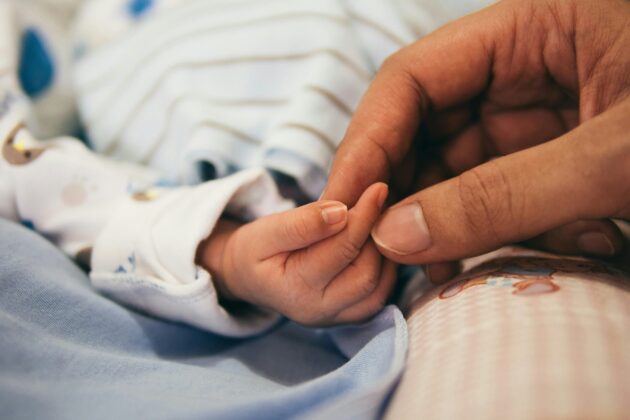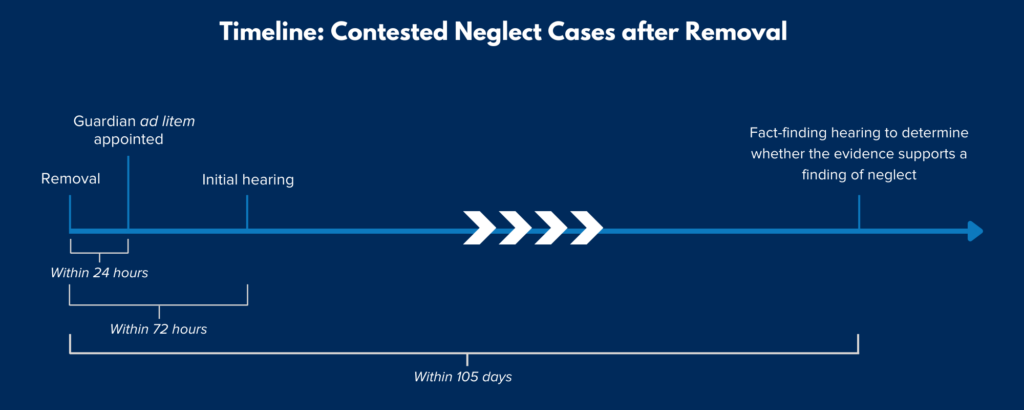A Win for Children and the Law

Every year, nearly two hundred DC children are removed from their parents and caregivers due to allegations of abuse or neglect. This initial separation can last months before the trial at which a judge determines if the child was neglected.

Years of research show that removing a child from their parents can have lasting, traumatic impacts on children. But until recently, although the law stated that removal needed to be required or necessary, practitioners and trial court judges had little guidance from DC’s highest court on how to evaluate the harm of removal when determining whether to place a child in foster care.
Last year, a mother sought medical care at a local hospital, arriving with her infant. Hospital personnel called the child abuse and neglect hotline and reported concerns the mother would be unable to care for her child.
All reports showed that the baby was healthy and thriving, and the mother was discharged the following day – but the child was still removed.
We appealed the trial court’s decision to keep the child in foster care – and won.
In December, the Court of Appeals granted our motion to publish its decision in the case – the first binding precedent addressing what evidence is sufficient to show that removal of a child from their family is required at the initial hearing in a DC neglect case.
This decision provides important guidance for this critical early stage in future cases:
- Insufficient Evidence to Justify Family Separation
While this decision leaves open the question of what the proper evidentiary standard in a shelter care hearing is, it gives practitioners a clear example of what constitutes insufficient evidence to justify family separation regardless of the standard used.
The court cites the uncontested health of the child, additional evidence that the parent generally functioned well as a caregiver and the availability of alternative arrangements and services to support the parent if they needed to seek treatment in the future all counting against a finding that removal was required. - Connection Between Mental Health and Ability to Provide Care
The opinion emphasizes that any parent facing a health emergency could find themselves needing alternative arrangements for their child’s care. The likelihood for need of additional medical treatment in the future could not make removal necessary. In its analysis, the Court of Appeals noted the trial court hadn’t found a nexus between the parent’s medical issues and an inability to provide or arrange care for their child going forward.
In a city where we need to reduce barriers in access to health care, especially those seeking mental health support, we can’t risk parents avoiding hospitals and health care settings if they fear their child could be removed without cause. This ruling requires a clearer demonstration of impact rather than relying on biases and stereotypes.
- Courts Must Consider Harm from Removal
In its decision, the court also specifically reminded trial courts that they must “evaluate the harm to the child that may result from removal” in shelter care hearings.
Removal generally leads to a long, invasive court process – often lasting months after the shelter care hearing before a court even determines if the child was neglected. Research shows that removal and even only temporary separation from parents can have severe negative effects on children and their development. And the harm can be especially damaging for infants. It is critical that courts consider harms from all possible outcomes of a shelter care hearings and weigh them carefully.
Advocating for a child’s best interests amidst allegations of abuse or neglect is inherently complicated. While there can never be absolute certainty when it comes to a child’s future, what is certain is that separating a child from a parent is a drastic step – one that disparately impacts parents with disabilities, Black and immigrant families and families living in poverty. Although the law has long stated that removal is a step that should only be taken when necessary, this opinion provides critical guidance on how to make this heavy decision.